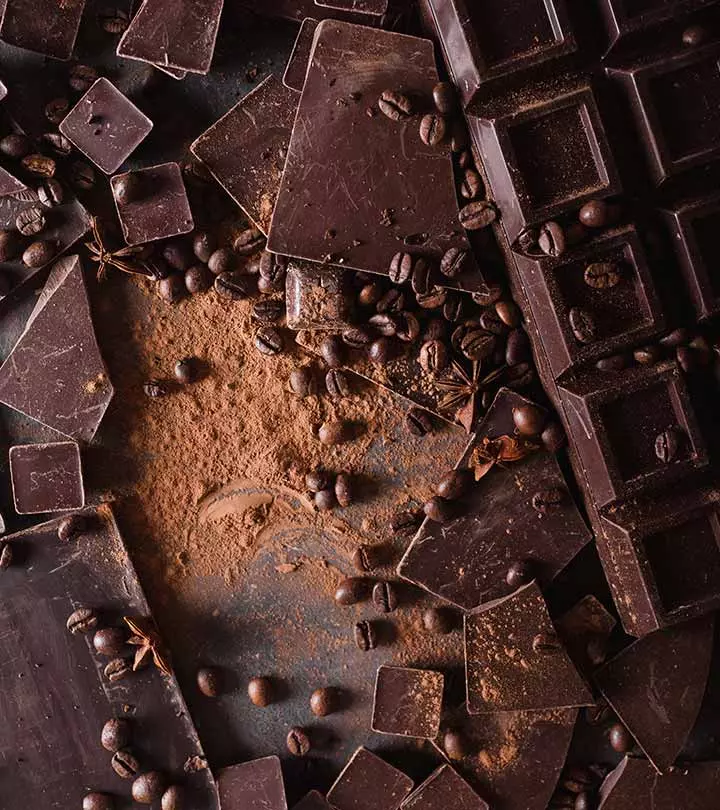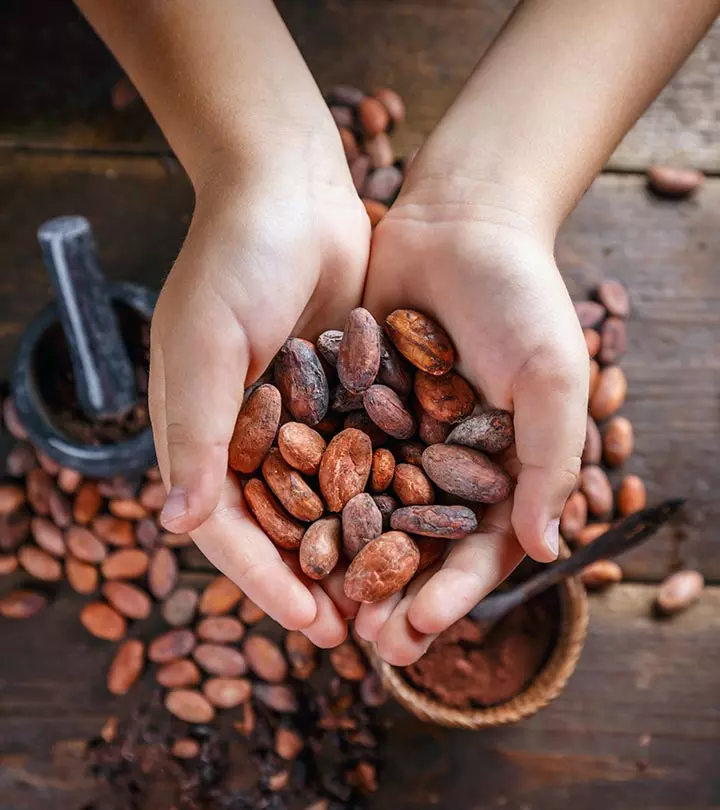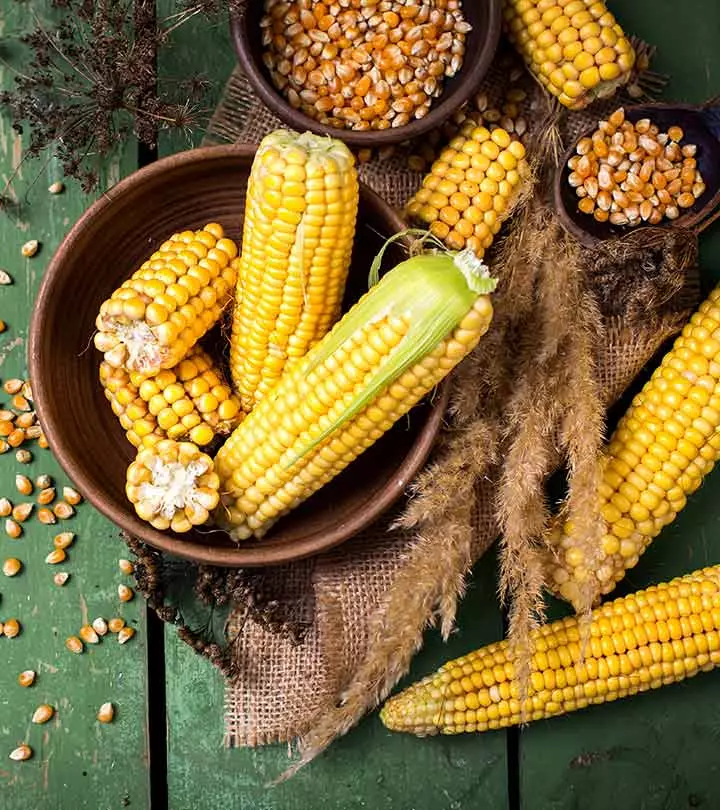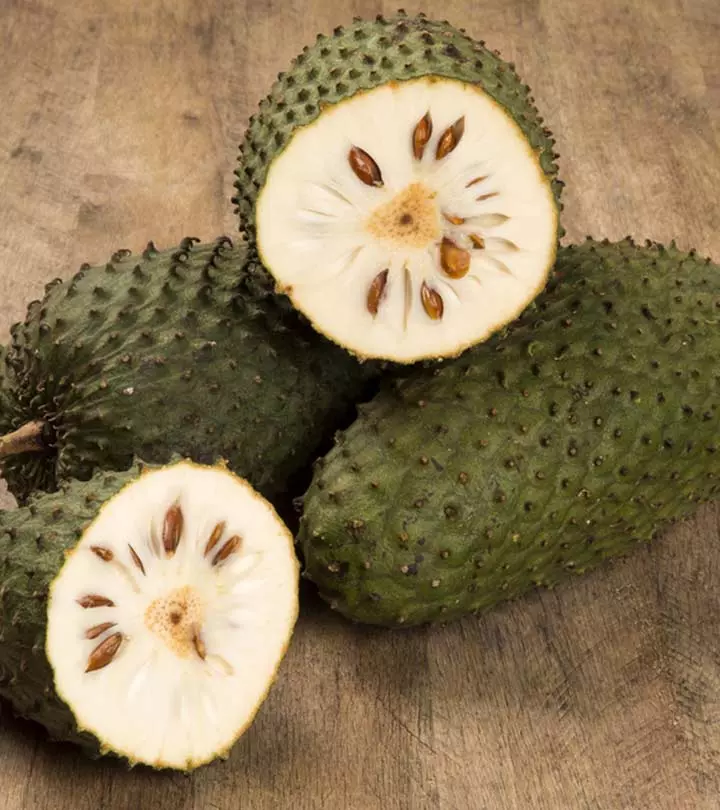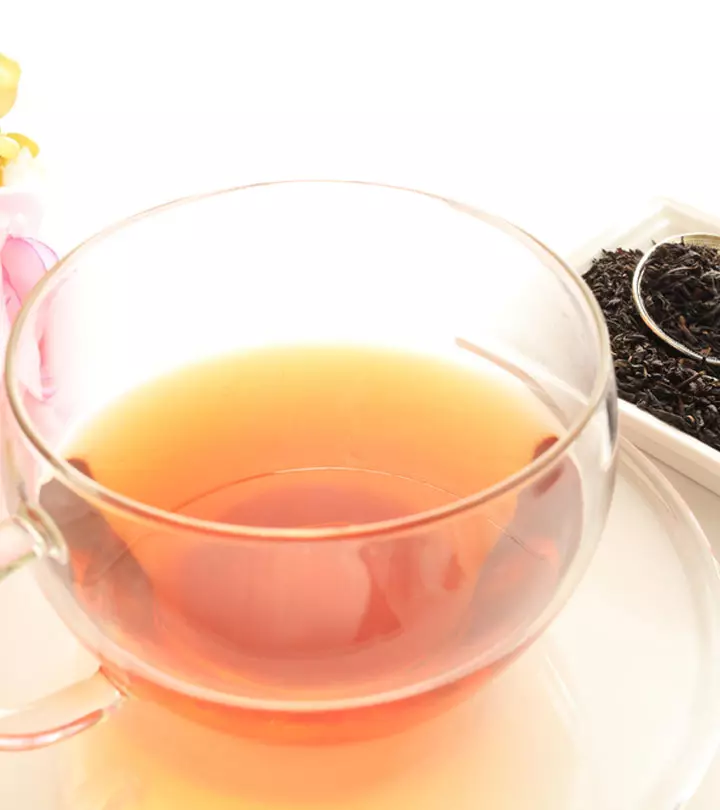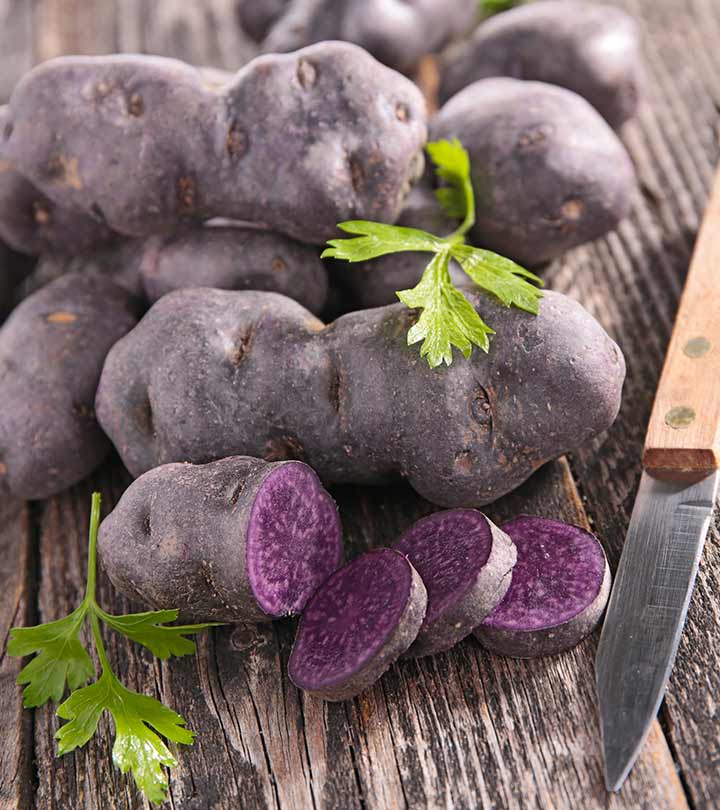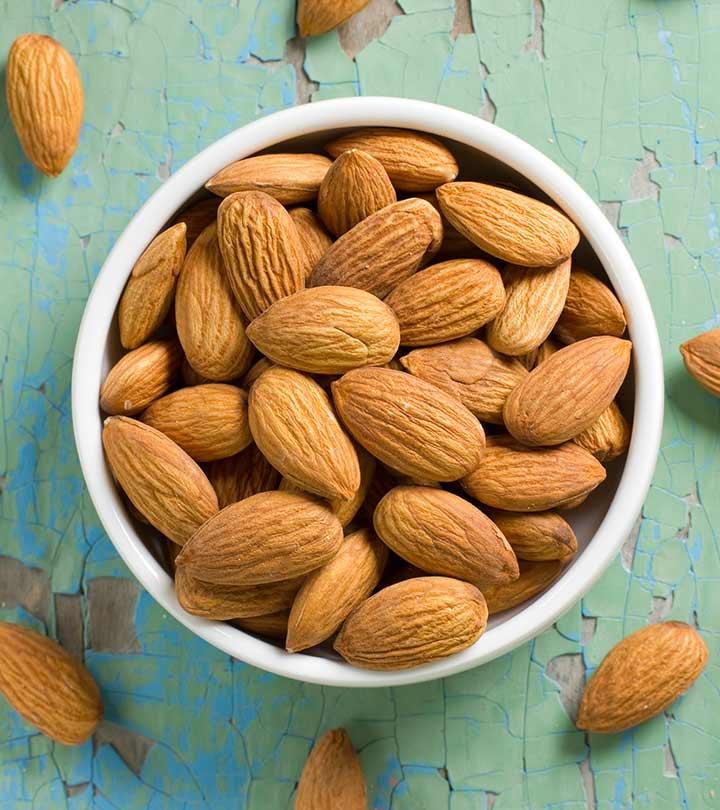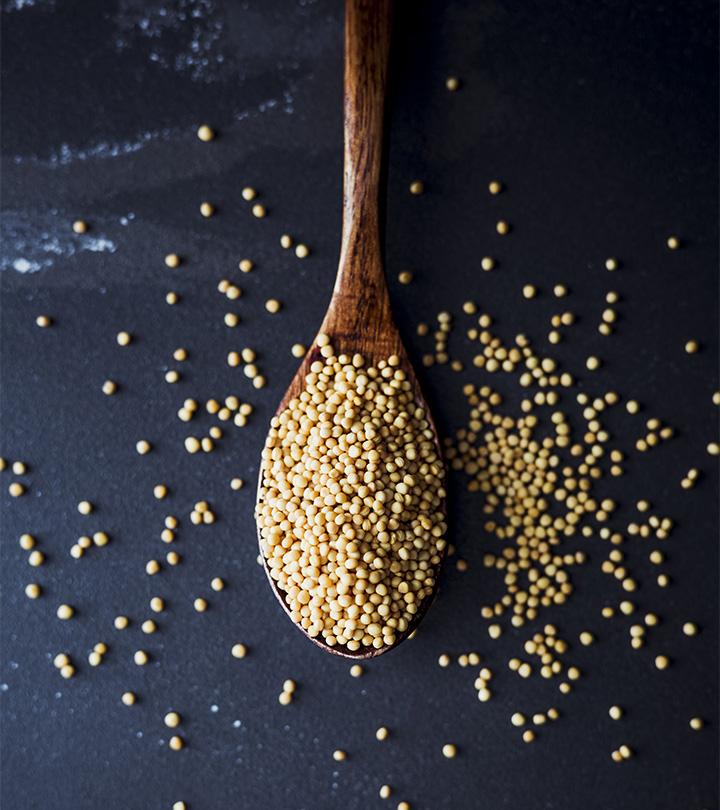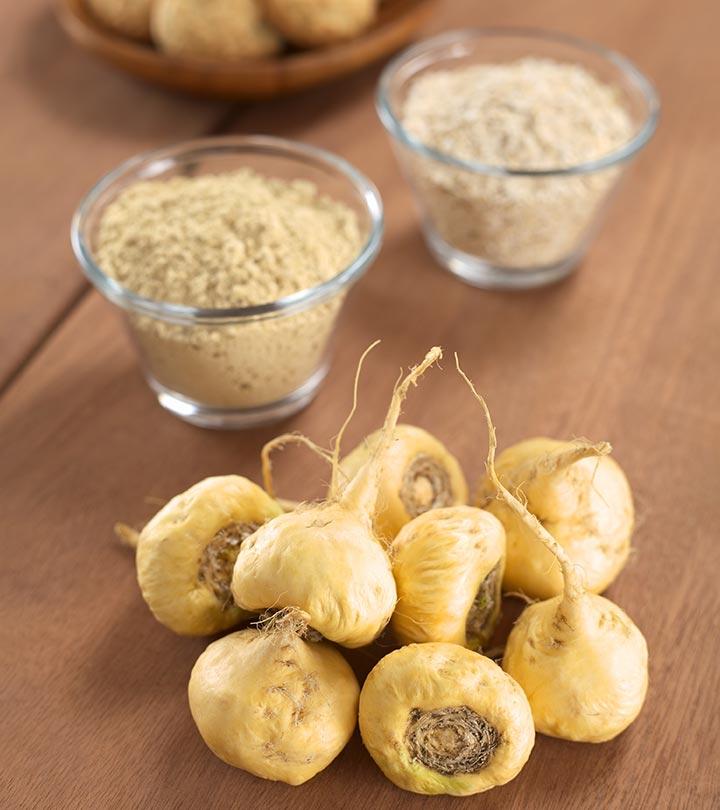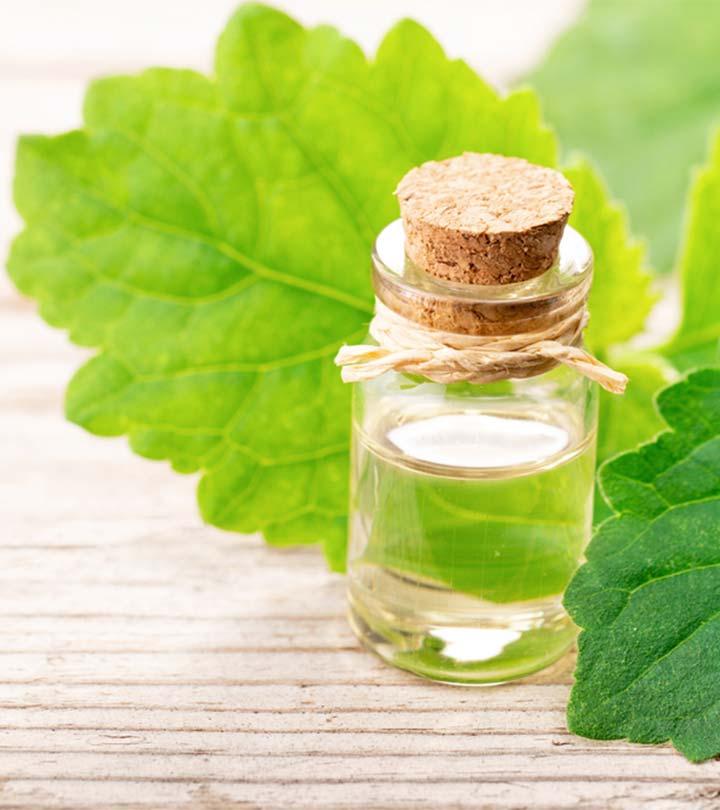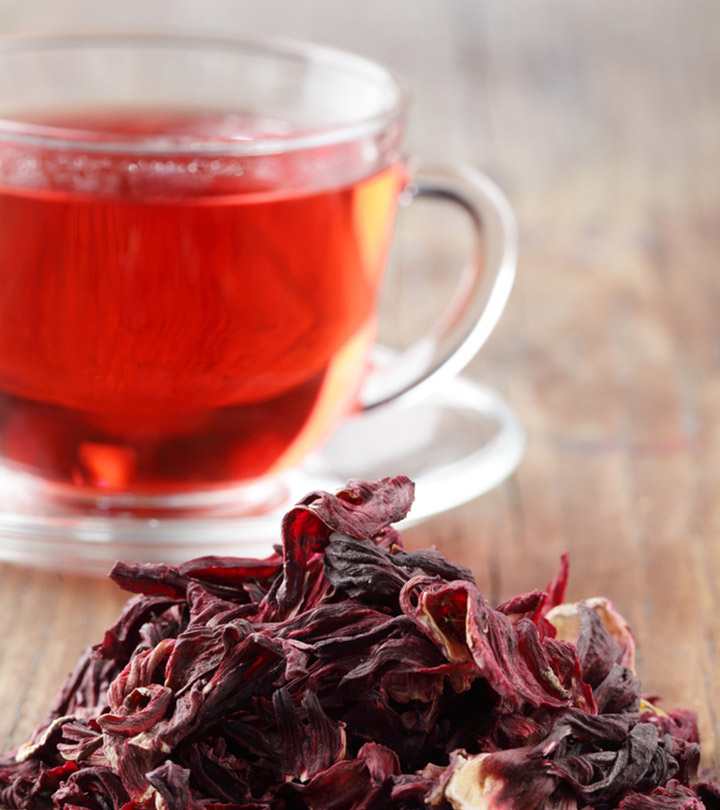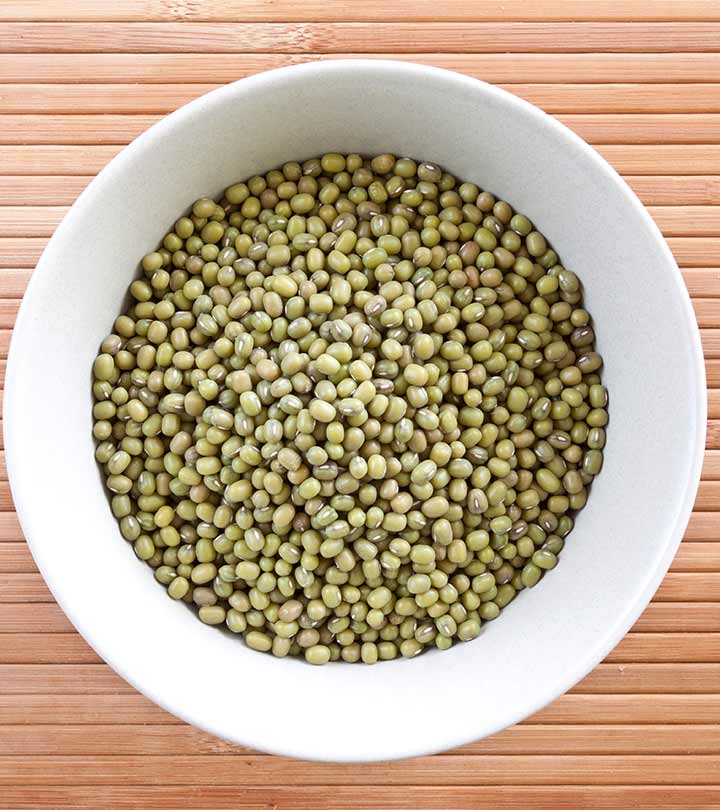6 Potential Health Benefits Of Coca Leaf Tea
Give your immune system that extra kick with this aromatic herbal infusion.
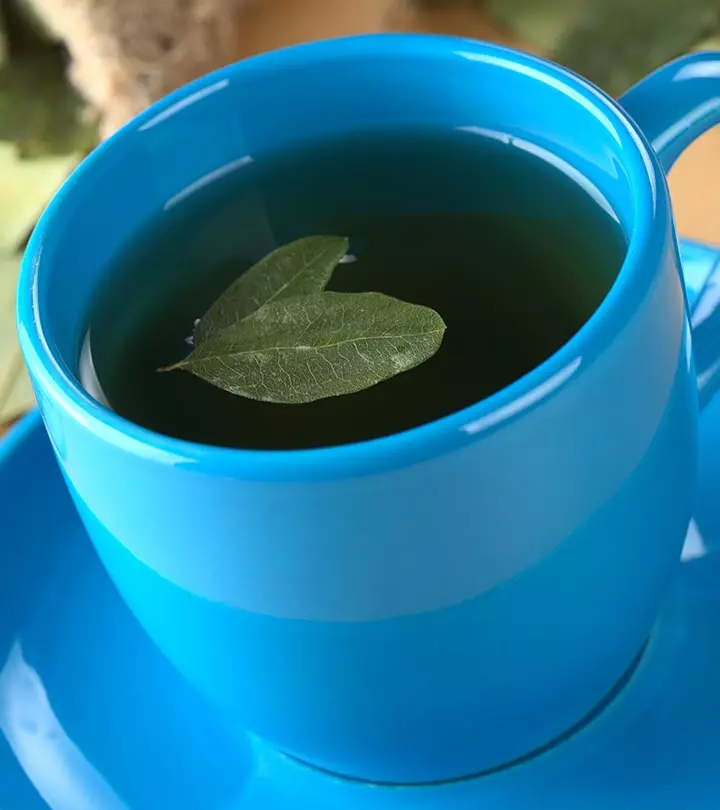
Image: shutterstock
Coca leaf tea is a herbal concoction made with the leaves of the coca plant. It is also known as mate de coca and has been used in traditional medicine by the indigenous people of South America for centuries. The benefits of coca leaf tea can be attributed to its rich phytonutrienti Chemicals naturally produced by plants that keep them healthy and protect them from bacterial or fungal infections. , alkaloid, and vitamin (A, C, E, B2, and B6) composition and antioxidant properties that are helpful in treating many ailments. Drinking this herbal tea promotes weight loss, boosts energy and mood, enhances the immune system, alleviates altitude sickness, and reduces diabetes risk. In this article, we have discussed the health benefits and possible side effects of coca leaf tea. Keep reading!
 Know Your Ingredient: Coca Leaf Tea
Know Your Ingredient: Coca Leaf TeaWhat Is It?
A herbal concoction made from the leaves of the coca plant.
What Are Its Benefits?
It increases energy and boosts the immune system.
Who Can Consume It?
Everyone. Travelers or hikers can consume it to alleviate altitude sickness.
How Often?
Up to 3 to 4 cups of coca tea per day.
Caution
Avoid consuming it if you are pregnant or have asthma and other heart ailments.
In This Article
What Are The Health Benefits Of Coca Leaf Tea?
1. May Promote Weight Loss
Mice studies state that coca tea may have a beneficial effect on weight loss (1). Alkaloids found in the tea may have the ability to promote weight loss. These compounds may play a role in increasing lipolysis (breakdown of fatty acids in the body for energy).
The intake of coca tea helps with appetite suppression (2). This also may contribute to weight loss. Anecdotal evidence suggests that drinking tea regularly may increase the body’s natural ability to burn fat.
2. May Boost Energy
Some theories suggest that individuals often use coca tea for its purported stimulanti A class of drugs or compounds that increases the activity of the central nervous system and makes one more alert, energetic, awake, and confident. properties (3). The leaves are a good source of carbohydrates, calories, minerals, and vitamins that helps boost energy levels, thus also increasing alertness (3). This tea’s stimulatory effect is similar to coffee. But coca leaves lack caffeine – their tea could be ideal for those intolerant to caffeine.
3. May Boost The Immune System
Coca tea leaves contain various minerals and vitamins, such as vitamin A, calcium, iron, and riboflavini A variant of Vitamin B which is water soluble and is essential for cell growth, breakdown of fats, and energy production. (4). These may play a role in boosting your immune system (5), (6). Though direct research is lacking, the rich nutrients in the tea may help in this regard.
4. May Alleviate Altitude Sickness
Coca tea has been used to relieve the various symptoms of altitude sickness for centuries. A study conducted by the SUNY Upstate Medical University found that consumption of coca leaf products may decrease high altitude sickness (7).
Another study conducted on 136 travelers found that the intake of coca tea reduces altitude sickness (2). Coca tea may help in improving the oxygen uptake and blood flow at high altitudes.
5. May Reduce Diabetes Risk
Coca leaves have a therapeutic potential in the treatment of type 2 diabetes (8). They contain nutrients, such as vitamin A, calcium, iron, and riboflavin, that may help managing diabetes and its associated complications (9), (10), (11). This, in turn, enhances metabolism and may lower the risk of diabetes.
6. May Relieve Indigestion
The presence of alkaloids and vitamins in coca tea makes it an effective remedy for issues relating to digestion. It has been used to treat stomach pain, nauseai A symptom of motion sickness, illness, and many such conditions that causes an urge to vomit but does not lead to vomiting. , bloating, and vomiting for centuries (12). It is commonly used in South America as an effective natural treatment for many problems that are associated with indigestion.
If you want to learn how to make coca tea, we’ve got you covered. In the following section, we have discussed the recipe.
How To Make Coca Leaf Tea
Ingredients
- 1 cup of water
- 1 teaspoon of coca leaves
- 1 teaspoon of honey (or sugar)
Procedure
- Bring a cup of water to a boil. Reduce heat and allow it to simmer.
- Add coca leaves to the hot water (195o F).
- Allow the mixture to brew for 4-5 minutes; the longer it steeps, the stronger the tea.
- Strain the mixture into a cup, separating the leaves.
- Add honey or sugar if desired.
 Quick Tip
Quick TipCoca tea could be simple to make. It contains no caffeine, which could be an added benefit to those sensitive to caffeine. However, the tea may also have certain side effects.
Side Effects of Coca Leaf Tea
Decocainized coca tea, or the tea made of leaves without cocaine, is safe for most people when taken in normal amounts (13). Excess consumption of coca tea may lead to irritability, headaches, and some issues during pregnancy.
- May Cause Irritability
Excess consumption of this stimulant beverage can result in irritability due to the concentration of cocaine, which is a very powerful stimulant drug (14). While only decocainized coca products are legal in the USA, they do contain trace amounts of cocaine (13). However, when taken in moderation, coca tea does little more than a strong cup of coffee.
- May Cause Heart Issues
The little cocaine in coca tea may strain the cardiovascular system (15). Hence, patients with heart disease should avoid coca tea.
- May Cause Problems During Pregnancy
Cocaine present in coca leaves may cause preterm birth, low birth weight, and certain birth defects (16). Hence, pregnant women should avoid the intake of coca tea. It may also cause Sudden Infant Death Syndrome (SIDS)i The sudden, unexplained death of a seemingly healthy baby under the age of one year, during sleep due to low levels of oxygen in the blood. (17). Breastfeeding mothers should also stay away from coca tea as it may have adverse effects on infants.
- May Lead To Addiction
Coca is nature’s addictive plant (18). If you consume coca tea in excess, it is possible you may get addicted. While a chemical process is required to extract cocaine in high concentrations from the same leaves, drinking this tea every day may result in addiction.
 Did You Know?
Did You Know?- May Worsen Asthma
The cocaine present in coca leaves can cause respiratory issues. Even in trace amounts, may make asthma worse (19). People who have asthma should avoid the consumption of coca tea.
Infographic: Coca Leaf Tea: Benefits And Side Effects
The dried, raw leaves of the coca plant are used to make a tea that helps treat gastrointestinal issues, motion sickness, and depression. Also, it is often used as a substitute for coffee in certain cases. Whether you are aiming for weight loss, beating tiredness, or boosting your immunity, this tea can help you get there. Check out the infographic below to learn about its wellness benefits and potential side effects.

Illustration: StyleCraze Design Team
The benefits of coco leaf tea can be attributed to its beneficial nutrients. It can promote weight loss, boost energy, alleviate altitude sickness, and strengthen the immune system. In addition, this tea can reduce diabetes risk and relieve indigestion. This tea can be prepared at home easily with simple ingredients. However, excess intake can cause irritability, addiction, and cause issues during pregnancy. Hence, caution is advised.
Frequently Asked Questions
How much coca tea can I drink?
You can have 3 to 4 cups of coca tea per day.
How long does coca tea stay in your urine?
Ccoca tea with detectable concentrations of cocaine metabolites can stay in your urine for at least 20 hours (13).
Does coca leaf increase blood pressure?
Yes, coca leaves contain cocaine, which may lead to a rise in blood pressure levels (20).
What does coca tea taste like?
Coca tea tastes similar to green tea – a little bitter but slightly sweeter than green tea.
Key Takeaways
- Coca leaf tea has many potential health benefits.
- Drinking this herbal tea may promote weight loss.
- Coca tea may help alleviate altitude sickness.
- It may lower the risk of diabetes and enhance immunity with nutrients like vitamin A, iron, and riboflavin.
- Excess intake of coca tea may lead to irritability, addiction, and problems during pregnancy.

Image: Stable Diffusion/StyleCraze Design Team
Discover the amazing health benefits of coca leaf tea in this enlightening video! Learn how this traditional tea can help improve your overall health and well-being.
References
Articles on StyleCraze are backed by verified information from peer-reviewed and academic research papers, reputed organizations, research institutions, and medical associations to ensure accuracy and relevance. Read our editorial policy to learn more.
- Yang, Xiao Rong, et al. “Effect of dietary cocoa tea (Camellia ptilophylla) supplementation on high-fat diet-induced obesity, hepatic steatosis, and hyperlipidemia in mice.” Evidence-Based Complementary and Alternative Medicine 2013 (2013).
https://www.ncbi.nlm.nih.gov/pmc/articles/PMC3723092/ - Bauer, Irmgard. “Travel medicine, coca and cocaine: demystifying and rehabilitating Erythroxylum – a comprehensive review.” Tropical diseases, travel medicine and vaccines vol. 5 20. 26 Nov. 2019.
https://www.ncbi.nlm.nih.gov/pmc/articles/PMC6880514/ - Biondich, Amy Sue, and Jeremy David Joslin. “Coca: The History and Medical Significance of an Ancient Andean Tradition.” Emergency medicine international vol. 2016 (2016): 4048764.
https://www.ncbi.nlm.nih.gov/pmc/articles/PMC4838786/ - Penny, Mary E., et al. “Can coca leaves contribute to improving the nutritional status of the Andean population?.” Food and nutrition bulletin 30.3 (2009): 205-216.
https://journals.sagepub.com/doi/10.1177/156482650903000301?icid=int.sj-full-text.similar-articles.3 - Boon P Chew, Jean Soon Park Carotenoid action on the immune response J Nutr. 2004 Jan;134(1):257S-261S. doi:
https://pubmed.ncbi.nlm.nih.gov/14704330/ - Bobby J. Cherayil Arch Immunol Ther Exp (Warsz). 2010 Dec; 58(6): 407–415.
https://www.ncbi.nlm.nih.gov/pmc/articles/PMC3173740/ - Biondich AS, Joslin JD. Coca: High Altitude Remedy of the Ancient Incas. Wilderness Environ Med. 2015;26(4):567–571.
https://pubmed.ncbi.nlm.nih.gov/26507611-coca-high-altitude-remedy-of-the-ancient-incas/ - Revista de Fitoterapia Potential of coca leaf in current medicine
https://www.researchgate.net/publication/317231029_Potential_of_coca_leaf_in_current_medicine - David A. Restrepo Erythroxylum in Focus: An Interdisciplinary Review of an Overlooked Genus
https://www.researchgate.net/publication/336708270_Erythroxylum_in_Focus_An_Interdisciplinary_Review_of_an_Overlooked_Genus - Md. Maroof Alam, Sarah Iqbal, Imrana Naseem Ameliorative effect of riboflavin on hyperglycemia, oxidative stress and DNA damage in type-2 diabetic mice: Mechanistic and therapeutic strategies
https://www.sciencedirect.com/science/article/abs/pii/S0003986115300394 - Somaye Yosaee, Maryam Akbari Fakhrabadi, and Farzad Shidfar Positive evidence for vitamin A role in prevention of type 1 diabetes
https://www.ncbi.nlm.nih.gov/pmc/articles/PMC4856890/ - Biondich, Amy Sue, and Jeremy David Joslin. “Coca: The History and Medical Significance of an Ancient Andean Tradition.” Emergency medicine international vol. 2016 (2016): 4048764.
https://www.ncbi.nlm.nih.gov/pmc/articles/PMC4838786/#B30 - Jenkins, A J et al. “Identification and quantitation of alkaloids in coca tea.” Forensic science international vol. 77,3 (1996): 179-89.
https://www.ncbi.nlm.nih.gov/pmc/articles/PMC2705900/ - Taba, Pille, Andrew John Lees, and Katrin Sikk. The Neuropsychiatric Complications of Stimulant Abuse. Academic Press, 2015.
https://www.sciencedirect.com/topics/biochemistry-genetics-and-molecular-biology/coca - Kim, Sung Tae, and Taehwan Park. “Acute and Chronic Effects of Cocaine on Cardiovascular Health.” International journal of molecular sciences vol. 20,3 584. 29 Jan. 2019.
https://www.ncbi.nlm.nih.gov/pmc/articles/PMC6387265/ - Forray, Ariadna. “Substance use during pregnancy.” F1000Research vol. 5 F1000 Faculty Rev-887. 13 May. 2016.
https://www.ncbi.nlm.nih.gov/pmc/articles/PMC4870985/ - Aoki, Yasuhiro. “Sudden infant death syndrome in infants of cocaine using mothers.” Journal of clinical forensic medicine 1.2 (1994): 87-91.
https://pubmed.ncbi.nlm.nih.gov/16371273-sudden-infant-death-syndrome-in-infants-of-cocaine-using-mothers/ - Hajar, Rachel. “Intoxicants in Society.” Heart views: the official journal of the Gulf Heart Association vol. 17,1 (2016): 42-8.
https://www.ncbi.nlm.nih.gov/pmc/articles/PMC4879807/ - Rome LA, Lippmann ML, Dalsey WC, Taggart P, Pomerantz S. Prevalence of cocaine use and its impact on asthma exacerbation in an urban population. Chest. 2000;117(5):1324–1329.
https://pubmed.ncbi.nlm.nih.gov/10807818-prevalence-of-cocaine-use-and-its-impact-on-asthma-exacerbation-in-an-urban-population/ - Taubert D, Roesen R, Schömig E. Effect of Cocoa and Tea Intake on Blood Pressure: A Meta-analysis. Arch Intern Med. 2007;167(7):626–634
https://jamanetwork.com/journals/jamainternalmedicine/fullarticle/412211
Read full bio of Gabrielle Kane
Read full bio of Ravi Teja Tadimalla
Read full bio of Aparna Mallampalli











